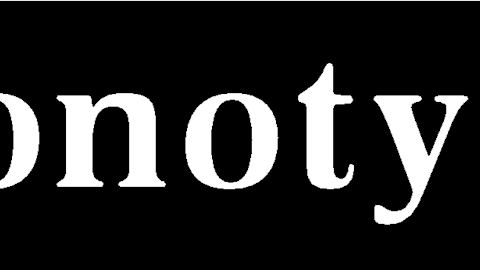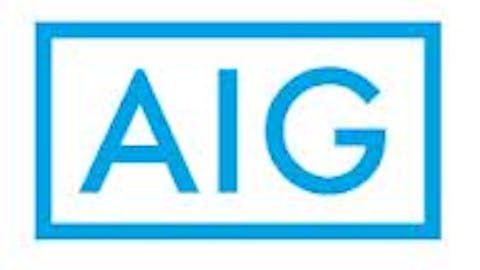Morningstar’s mutual fund manager of the decade, Bruce Berkowitz, has an incredible track record that makes his 13-F a must-read for all investors. His mutual fund, Fairholme Fund, has outperformed the S&P 500 by an average of 10.4% per year since 2000, losing to the index in only two of the last 13 years.
Berkowitz is extremely concentrated by mutual fund standards, often holding no more than 15 to 20 stocks in his portfolio. He is best known for investing in complicated financial-services firms, like American International Group Inc (NYSE:AIG) and Bank of America Corp (NYSE: BAC), shortly after the financial crisis and before sentiment turned positive on the names. But Berkowitz has also had success owning less-complicated companies like St. Joe and Chesapeake Energy.

Government bailout
Berkowitz initiated his position in American International Group Inc (NYSE:AIG) in 2010 when it traded for less than half of tangible book. His thesis was simple: American International Group Inc (NYSE:AIG) could produce a sustainable 10% return on equity, meaning investors who buy at half of book would receive a 20% annual return on investment. Berkowitz made his investment well after the financial crisis had subsided and its fundamentals had already improved, despite its price having remained stagnant.
American International Group Inc (NYSE:AIG)’s stock price has doubled since 2010, leaving many investors concerned that the stock has reached its fair value. However, the stock still trades at just 0.7 times book value; if it can consistently generate a 10% return on equity, investors will receive a 14% annual return on investment (10% divided by 0.7).
It seems likely that the company will be able to achieve Berkowitz’s target. For one, it reported a 9.7% return on equity in 2010 and a 17% return on equity in 2011. In addition, the company has trimmed its less profitable businesses so that it can focus on a core group of insurance lines; this also has the handy effect of making the company less complicated to manage, meaning C-level executives can keep a better eye on company-wide risk.
The de-risking of the company and its still-low multiple of book are probably the reasons why Berkowitz continues to hold the stock as a 50% position.
Most hated bank in America
Besides AIG, Berkowitz’s other big bet on financials comes in the form of Bank of America Corp (NYSE: BAC). His thesis for the controversial bank is similar to that for AIG: the stock traded at less than one-third of book value, its core businesses were capable of a 10% return on equity, and the bank is too big to be allowed to fail.
Unlike AIG, however, Bank of America Corp (NYSE: BAC) has not yet generated a company-wide 10% return on equity since the financial crisis. The stock now trades at 0.7 times book value — the same as AIG — and offers a 14% annual return on investment if Berkowitz is right.
But the bank is appealing not only because of its price-to-book ratio, but also because it has sold-off several non-core businesses to raise cash for a more secure balance sheet. In addition, CEO Brian Moynihan’s cost-cutting programs have helped raise return on assets from 0.1% in 2011 to 0.8% in its most recent quarter. At a 1% return on assets, the bank can generate a 10% return on equity.
Ultimately, an investment in Bank of America Corp (NYSE: BAC) is just a waiting game for the bank’s loan book to firm up enough to lower the provisions for loan losses. Berkowitz believes that patient investors will be rewarded with a stock price in excess of $20.
Old-economy retailer
Sears is Berkowitz’s third-largest, and most surprising, holding. Fairholme revealed a stake in the Eddie Lampert-led retailer in 2012. Sears has struggled for years as brick-and-mortar retailers suffered at the hands of Amazon and Wal-Mart.
The crux of Berkowitz’s thesis for Sears seems to have to do with the company’s vast real estate portfolio, which is carried on the books at an artificially low price due to the lack of a recent appraisal. Sears owns over 250 million square feet in real estate that Berkowitz believes is worth more than the market capitalization of the stock.
However, investors should not be so quick to trust Berkowitz on Sears. For one, Berkowitz’s bread-and-butter is financial services, not retail. The argument that Sears’ real estate provides ample downside protection in the event that the retail business does not turn around seems far fetched.
Not only will it be impossible to offload 250 million square feet of real estate in a timely manner, it is also unlikely that the real estate will be worth what Berkowitz thinks it is if the retail side does not recover; retail real estate is only going to be worth a lot when retail sales are strong, which will likely not be the case when Sears fails.
Bottom line
Investors should always do their own work, even when a super-investor like Berkowitz invests in a stock. Berkowitz has been right so far on AIG and Bank of America, but his stake in Sears looks early at best and a money-loser at worst. Nevertheless, each position is interesting in its own right and worth a closer look.
The article Fund Manager of the Decade Reveals His Favorite Stocks originally appeared on Fool.com and is written by Ted Cooper.
Ted Cooper has no position in any stocks mentioned. The Motley Fool recommends American International Group and Bank of America. The Motley Fool owns shares of American International Group and Bank of America and has the following options: long January 2014 $25 calls on American International Group.
Ted is a member of The Motley Fool Blog Network — entries represent the personal opinion of the blogger and are not formally edited.
Copyright © 1995 – 2013 The Motley Fool, LLC. All rights reserved. The Motley Fool has a disclosure policy.





